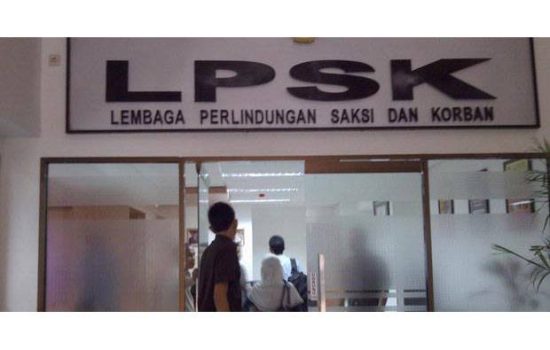Series #1 Adoption of the Bill of Penal Code
The overcriminalization as the result of the vagueness in distributing and framing of the punishments in the Bill of Penal Code is clearly contrary to the Mr. President Joko Widodo’s mission which wants to revitalize the law, provide a sense of security in the society and solve the problem of overcapacity in the correctional institutions.
9 January 2017 is the date of the opening session of the House of Representatives (DPR) III Session year 2017-2018. The Bill of the Penal Code (RKUHP) according to one of the drafters, Prof. Muladi, will be adopted in January 2018. A while ago in December 2017, he said that the RKUHP is already 95 percent completed. Agreed with his statement, the Minister of Law and Human Rights, Yasonna Laoly, also said that the RKUHP will be completed in January or February 2018. Based on the monitoring of the Aliansi RKUHP (Alliance of the Penal Code Reform), there was an agenda of meeting on 5 December 2017 between the RKUHP Working Committee and the Minister of Law and Human Rights in order to report, make a decision and to sign the RKUHP. But in fact, the meeting was not held and the adoption was postponed.
While the process of rereading of Book I RKUHP has been completed and submitted to the drafting team and synchronization team, the discussion of the book II has not been completed yet. There are several articles that are still postponed in Book I and Book II, and those will be resolved in the RKUHP Working Committee meeting.
The provisions on customary/adat law and the regulation of death penalty in Book I are still pending and in progress. In Book II, the provisions that are still pending are on the crimes against state security, crimes against the name of the head of the state, crimes of licensing and disruption of seeds and plants, crimes against religions, crimes against morality, gambling, limitation of defamation law, crimes against life, crimes against business commitment (confidence trick), customary/adat law, and chapters on special crimes.
From the pending discussions, one of the main areas is the distribution and framing of punishments. ICJR and Aliansi RKUHP have repeatedly provided notes concerning these issues, especially on the using of imprisonment as punishment in the Bill of Penal Code.
First, the Bill of Penal Code has a big potency of overcriminalization due to its excessive punishments. Since in the beginning, the Parliament and the Government have committed to do assessments for the grading of the punishments. However, until now, the government has not been able to provide a sufficient explanation regarding distribution and framing of the punishments.
Several articles in RKUHP according to ICJR are worded with excessive punishments. For instance, defamation and adultery shall be punished with 5 (five) years of imprisonment, which means whoever committed these two criminal acts may be subjected to arrest, detention, search and seizure. In the current Penal Code, these two acts shall be punished with a maximal 4 years and 9 months of imprisonment which cannot and do not need to be arrested or detained.
Secondly, on several occasions, the Government and the President Joko Widodo have always addressed the prison overcapacity issues and the use of alternative punishments outside of imprisonment. RKUHP is being cherished because it adopts the use of social work for cases with less than 6 months of imprisonment as punishment.
The problem is that the punishments in the RKUHP is set too high and it is highly dependent on the judges’ decision to deliver punishment less than 6 months of imprisonment, which also rests on the prosecution. Technically and practically, it would be challenging for the judges to deliver imprisonment under 6 months, if the prosecutors filed a long prison charge, which also depends on punishments set in the law.
Based on ICJR’s findings, there are only 59 criminal acts that can undoubtedly be penalized with social work. While the other 1.154 criminal acts have imprisonment as punishment, and 328 criminal acts have at least 1 to 5 years of imprisonment as punishment.
Thirdly, another problem with this condition is the power to carry out arrest, detention, search and seizure by the law enforcement officers which resulted from a high punishment that is not equipped with an adequate monitoring mechanism in the Criminal Procedural Code. This will have the potency of arbitrary and corruption in the body of law enforcement, and in the end, it will lead to human rights violations.
The unclear distribution and framing of punishments will provoke a high number of imprisonment, and as a consequence: overcriminalization. Therefore, it contradicts with Mr. President Joko Widodo’s legal mission that is to revitalize the law, provide a sense of security in society and solve the problem of the overcapacity in correctional institutions.
Aliansi RKUHP encourages the House to continue to seek an explanation from the government regarding the distribution and framing of punishments in the RKUHP. It is important to assess the rationale behind each punishment. The answer will be the compass whether the government can hold their promise to avoid overcriminalization in Indonesia criminal justice system or not.




